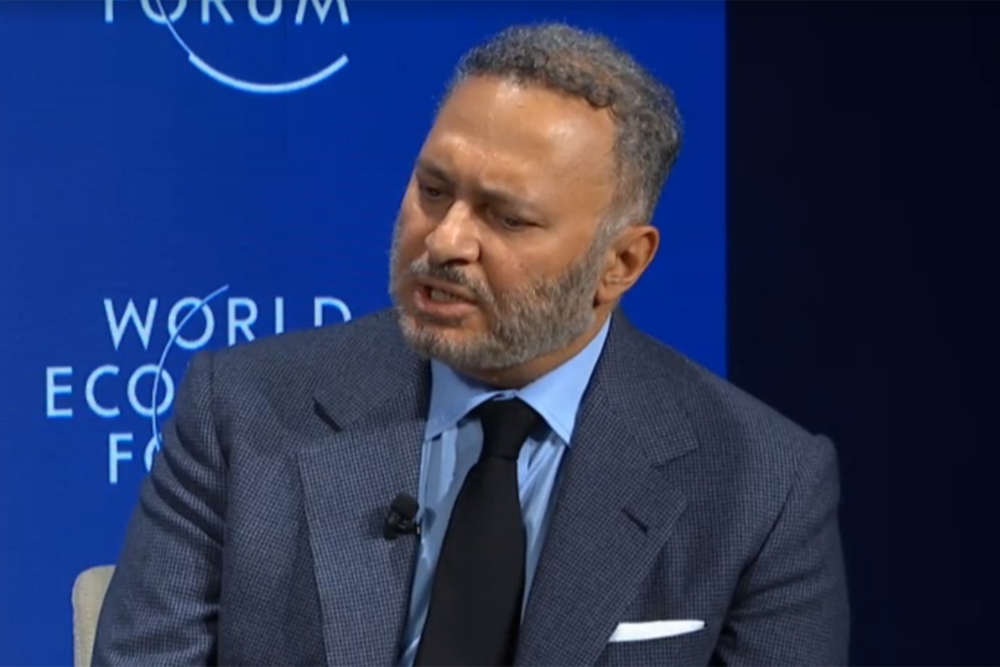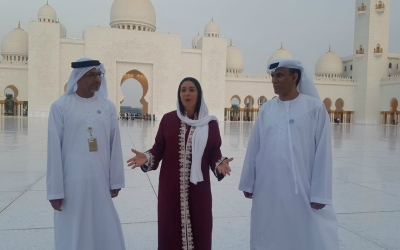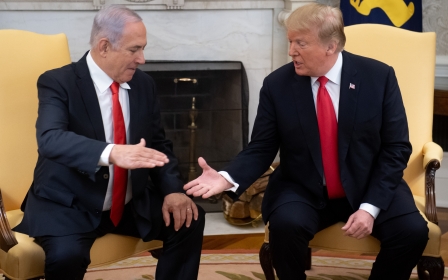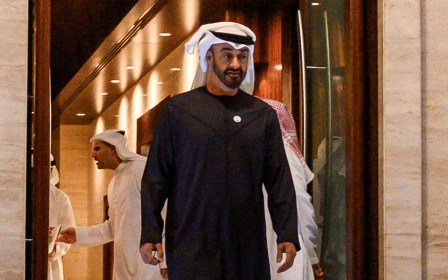Top UAE official says Palestinian state 'no longer feasible', calls for closer ties with Israel

A top Emirati official has said that a two-state solution to Israel and Palestine was no longer possible, as he called for closer ties with Israel in an interview in Dubai.
Anwar Gargash, minister of state for foreign affairs, mirrored statements from Israeli Prime Minister Benjamin Netanyahu and US President Donald Trump as he dismissed the longstanding two-state solution that until recently was the official policy of Arab Gulf states.
"A two-state solution will no longer be feasible because a sort of reduced rump state will no longer be practical," he said in conversation with UAE newspaper the National.
The top Emirati official called for dialogue and closening ties with Israel at an event in Dubai, and criticised Arab states' historic decision to boycott Israel over its persecution of Palestinians and colonisation of neighbouring lands.
“Many, many years ago, when there was an Arab decision not to have contact with Israel, that was a very, very wrong decision, looking back,” Gargash said.
New MEE newsletter: Jerusalem Dispatch
Sign up to get the latest insights and analysis on Israel-Palestine, alongside Turkey Unpacked and other MEE newsletters
“Because clearly, you have to really dissect and divide between having a political issue and keeping your lines of communication open.”
The UAE, along with the other Arab Gulf countries, have no official diplomatic relations with Israel, but recent years have seen Israel grow closer to Saudi Arabia, UAE, Bahrain and Oman as their regional and financial interests overlap, especially in relation to Iran.
Reports have shown how Saudi, Emirati and Bahraini authorities have relied on Israeli spyware to target the mobile phone of members of civil society, often ending in activists' incarceration.
Israeli athletes have also recently travelled to Gulf Arab states in recent months to participate in international competitions, and Gargash predicted the trend to increase.
However, he also said a deeper "strategic shift" would take place, with positive consequences for the Palestinians.
"What we are facing, if we continue on the current trajectory, I think the conversation in 15 years’ time will really be about equal rights in one state," he said.
He added that the trajectory would shift so that in "10 to 15 years, the discussion will be what is the nature of the Israeli state, what are the rights of the Palestinians within that Israeli state, should they be equal citizens, is it sustainable that they are not equal citizens?”
This article is available in French on Middle East Eye French edition.
Middle East Eye delivers independent and unrivalled coverage and analysis of the Middle East, North Africa and beyond. To learn more about republishing this content and the associated fees, please fill out this form. More about MEE can be found here.





